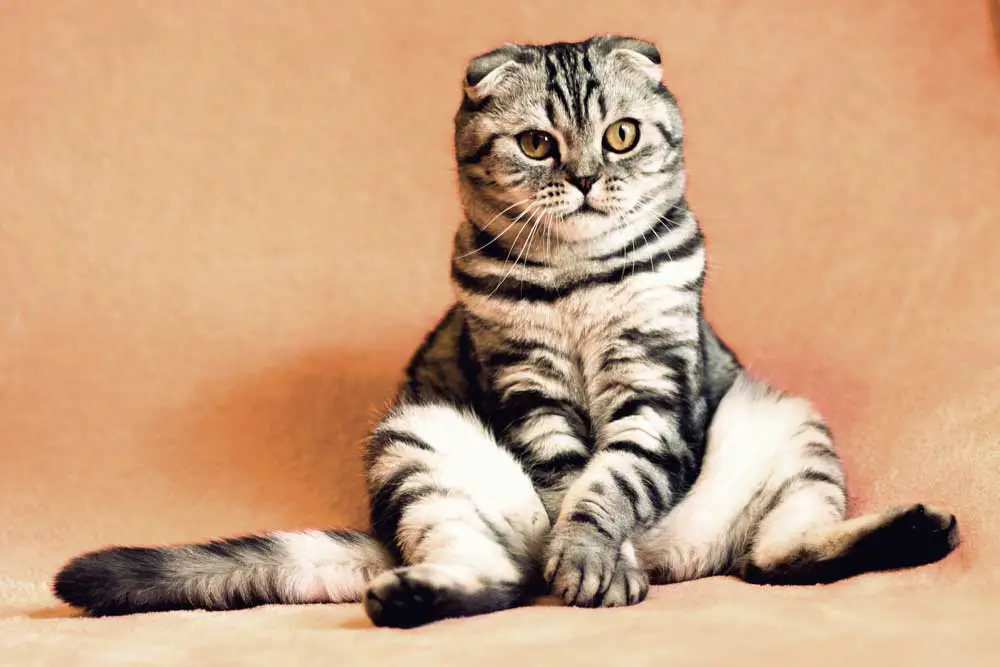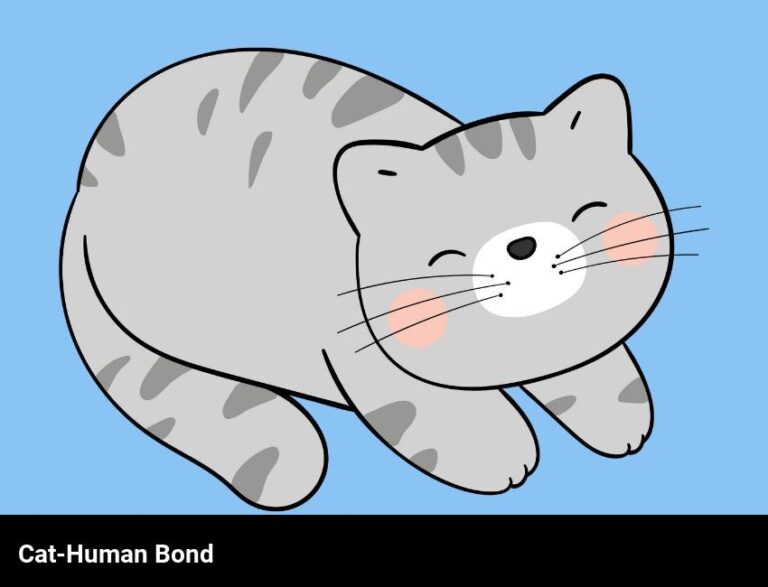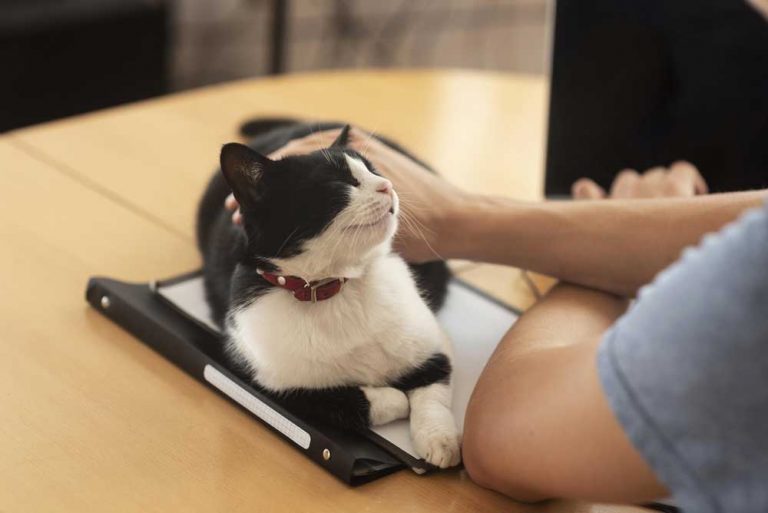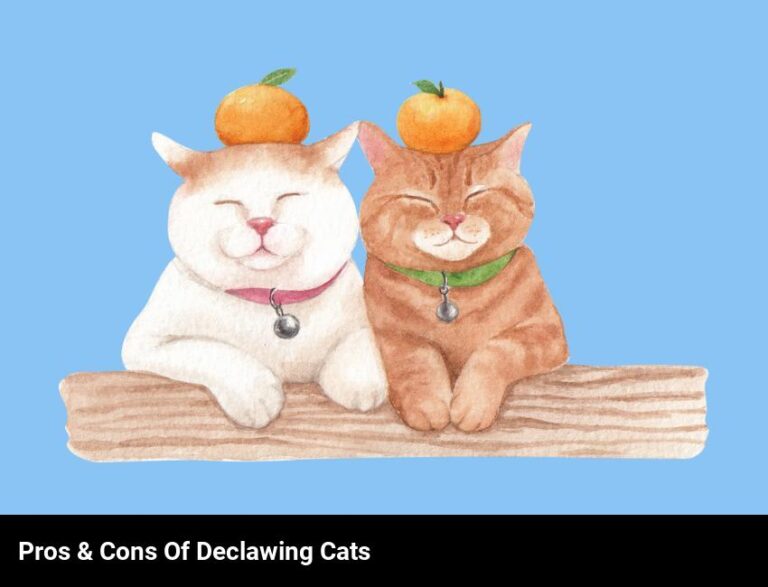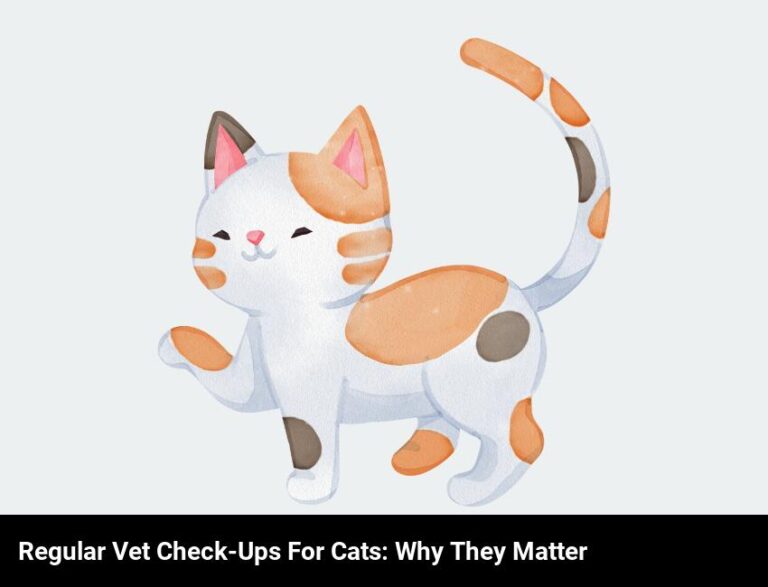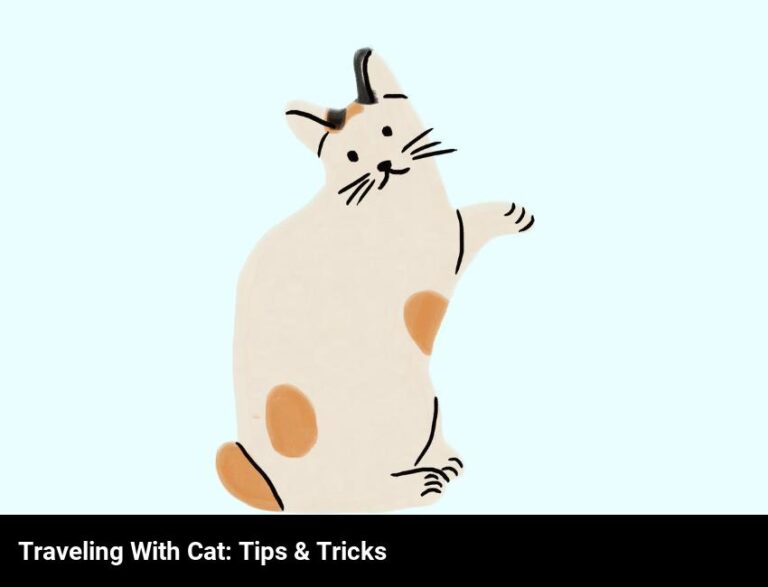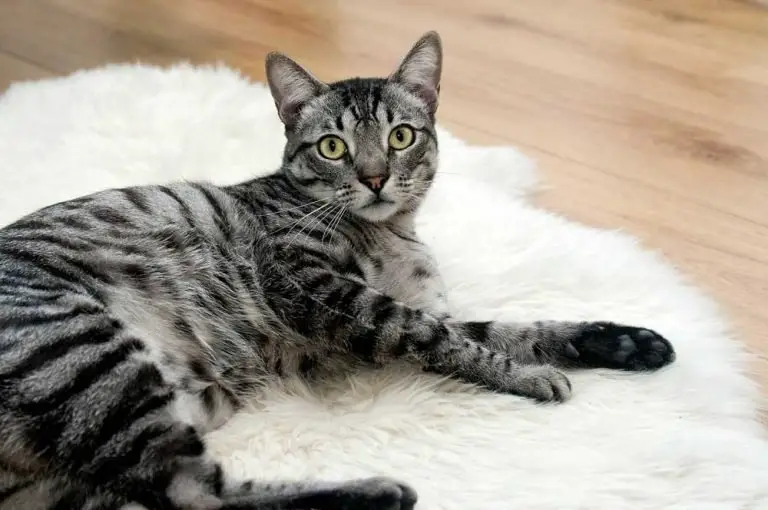Is My Cat Overweight? [Risk & What to Do!]
Cats sleep a lot of the time and sometimes they tend to eat a lot too. They could easily eat more calories than they need.
Does your pet look bigger and you are wondering whether they are overweight or just healthy? Read on to find out.
Is my cat overweight?
The average weight of a cat is usually 7-12 pounds for adults. However, there is usually a variation considering their breed and body frame. A cat is usually overweight if their weight is above their ideal weight by 10%. This becomes obesity if your cat is above their ideal weight by 20%. If you suspect that your cat is overweight, there are several things that you can look out for to ascertain that.
If you cannot feel your cat’s ribs or spine, cannot see an indentation where their waistline should be, and if they can’t do things that they normally used to including moving and playing like usual.
Signs of an overweight cat
If your cat’s weight does not range in the 7-12 pound bracket, then they could be overweight. Other more significant signs of overweight cats will be:
Not feeling their ribs and spine
As you pet your cat, touch them gently and try to feel their spine and ribs. Do you feel the bones with your hands or all you feel is fat?
Feeling only fatty matter instead of their actual ribs or spine is a sign that your cat is overweight. Also, if you need to press a little harder to feel them, they could be overweight.
Not seeing an indentation above hips
Observe your cat from the front. Do you see an indentation or dip above the waist where their waistline should be?
If you do, then your cat is fit. However, if you see a bulge or hanging fat around the abdomen, then they could be overweight. Cats should have a dip at the waist area.
Inactivity
Be keen on your cat’s activity levels. Have they become less active than they used to be?
If your cat is not as playful as they normally are or even interested in chasing you, then they could have gained some unhealthy weight. They may also have problems with their movements and seem to be unable to move properly.
Causes of cats being overweight
Having seen the signs of your pet being overweight, let’s now see the possible causes of them being overweight.
They include:
Diet
The main cause of unhealthy weight gain is usually a diet whether it’s in humans or pets. This applies true to your cat too.
If you feed your cat large amounts of foods or an unhealthy diet that’s high in calories and fat, they will indeed gain weight. Some foods will contribute to unhealthy weight gain even if they are given in the right amounts.
Lack of exercise
Cats are not the most active of animals and they can spend most of their days lying around. They can even sleep for an average of 15 hours a day.
This means that they won’t exercise as much as they are supposed to. Lack of exercise will lead to weight gain as they are not burning all the calories that they are taking in.
Health-related reasons
You could be feeding your pet the correct diet that’s healthy and exercising them as well, but they will continue gaining weight. In instances like this, the cause could be deeper.
They could be having an underlying health condition leading to weight gain. It could be a metabolic condition, an infection, or even heart disease.
The condition could contribute to unhealthy weight gain making your pet overweight even if they are doing everything else they are supposed to do to be fit.
Neutering
Neutering has been linked to weight gain in both cats and dogs. When they are neutered, they usually have a decreased metabolic rate making their energy needs lower than they usually are.
This will usually lead to weight gain if you don’t check what you are feeding them and how much you feed them after the surgery.
Risks of obesity in cats
An overweight cat is usually on the way to being obese and if nothing is done about their weight, they will get there pretty fast. Obesity leads to several health risks and health-related conditions in your pet.
They include:
- Skin disorders.
- Inflammations that could turn chronic.
- Skin disorders.
- Issues with their kidneys.
- Diabetes.
- Breathing problems.
- Arthritis.
- Lethargy.
- Reduced lifespan.
What to do if your cat is overweight
If your pet is overweight, you should determine what the actual cause of their unhealthy weight gain is. This will help you know how to deal with the problem.
You can also see a vet who will confirm your general assessments. They will help you figure out the problem and find a solution.
Based on the cause, you can follow these steps if your pet is overweight:
Diet
If you have been feeding your pet high amounts of food or unhealthy foods, you should talk to a vet about the correct amounts and the right diet for your pet.
The recommended diet of cats is 24-35 calories per pound daily. Treats should be a maximum of 10% of their overall meals.
Your vet will recommend weight control foods or a weight loss cat formula that will aid your cat in losing the extra weight. When changing your cat’s diet, remember to do it gradually and change it one meal at a time. This prevents an abrupt switch that could stress and confuse them.
Exercise
Cats are not active and if they are overweight, they will be more inactive, lazing around more. Try to indulge them in games for their exercise.
They should exercise for 30 minutes each day of which you can split into two 15 minute sessions of play. Get them to stretch, jump, and run with toys or tunnels you can make for them with empty boxes.
Neutering
After neutering, your pet’s food intake should be reduced by 20-30% because they won’t be needing a lot of energy. This will ensure they do not gain more weight.
See a vet
If your pet is seemingly gaining more and more weight while being on the right diet with the correct daily feeding amounts yet they haven’t been neutered, then you should see a vet.
They could be having an underlying problem that will require tests. Their blood and urine samples should reveal what is bothering them and what they require to get better.
Conclusion
Your cat is overweight if you cannot easily feel their ribs and spine. It could be due to the diet you are feeding them, lack of exercise, or underlying conditions.
You should always keep a keen eye on them to notice any changes in them and ensure that you don’t overfeed or let them oversleep. Keep them on the right diet while making sure they are getting enough exercise.
Remember, a fit healthy cat is a happy cat!
- Can Cats Have Grey Eyes?
- Why Do Cats Make Weird Noises Like a Baby Crying?
- Why Are Black Cats So Cuddly?
- Can Cats And Ferrets Share a Litter Box?
- Is Meow Mix Not Good For Cats?

